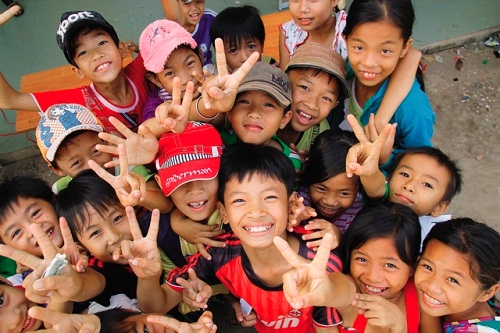The joint affirmation was made by Norwegian Ambassador to Vietnam Grete Lochen and UNFPA Representative in Vietnam Naomi Kitahara at a working session on April 15 to discuss gender equality in Vietnam, focusing on gender-based violence and GBSS.
Addressing the session, the ambassador said that the top priority of the Norwegian Government is to strengthen and observe global standards on the rights of girls and women, including changing the preference for sons.
    |
 |
|
Vietnam’s gender imbalance has rapidly increased in recent times and stood at 111.5 boys per 100 girls in 2019. Photo for illustration: MOLISA |
The Norwegian Government is working with many partners and relevant parties, including the UNFPA, to deal with the problem on global, regional, and national scales, she said.
Lochen expressed delight at Vietnam’s pioneering role in dealing with GBSS, affirming that close cooperation and a comprehensive approach are among the major measures for the successful resolution of the problem.
For her part, Kitahara acknowledged Vietnam’s progress in promoting gender equality. She also said that this progress should be further sped up within the completion of the sustainable development goals (SDGs).
She pledged to assist Vietnam and local social organisations to hasten changes towards becoming a modern, progressive country where all women and girls have access to the same opportunities as men and boys.
The working session was a chance for both sides to review the three-year “Addressing Gender Biased Sex Selection and Related Harmful Practices in Vietnam” project, which was launched in April 2020.
The project is being jointly funded by the UNFPA and the Norwegian Government, and implemented by the Vietnamese Ministry of Labour, Invalids and Social Affairs, the General Office for Population and Family Planning under the Ministry of Health, the Vietnam Farmers’ Union, and the Centre for Studies and Applied Sciences in Gender, Family, Women and Adolescents.
It aims to support the Government's ongoing efforts to fully implement approved legal and policy frameworks to end GBSS, and includes campaigns conducted through innovative approaches to change social norms and practices that reinforce the preference for sons and the low value of girls, strengthening capacities in the media, implementing the fatherhood program, and streamlining the country’s coordination mechanisms for GBSS.
Vietnam’s gender imbalance has rapidly increased in recent times and stood at 111.5 boys per 100 girls in 2019, according to the 2019 Population and Housing Census.
Source: VNA